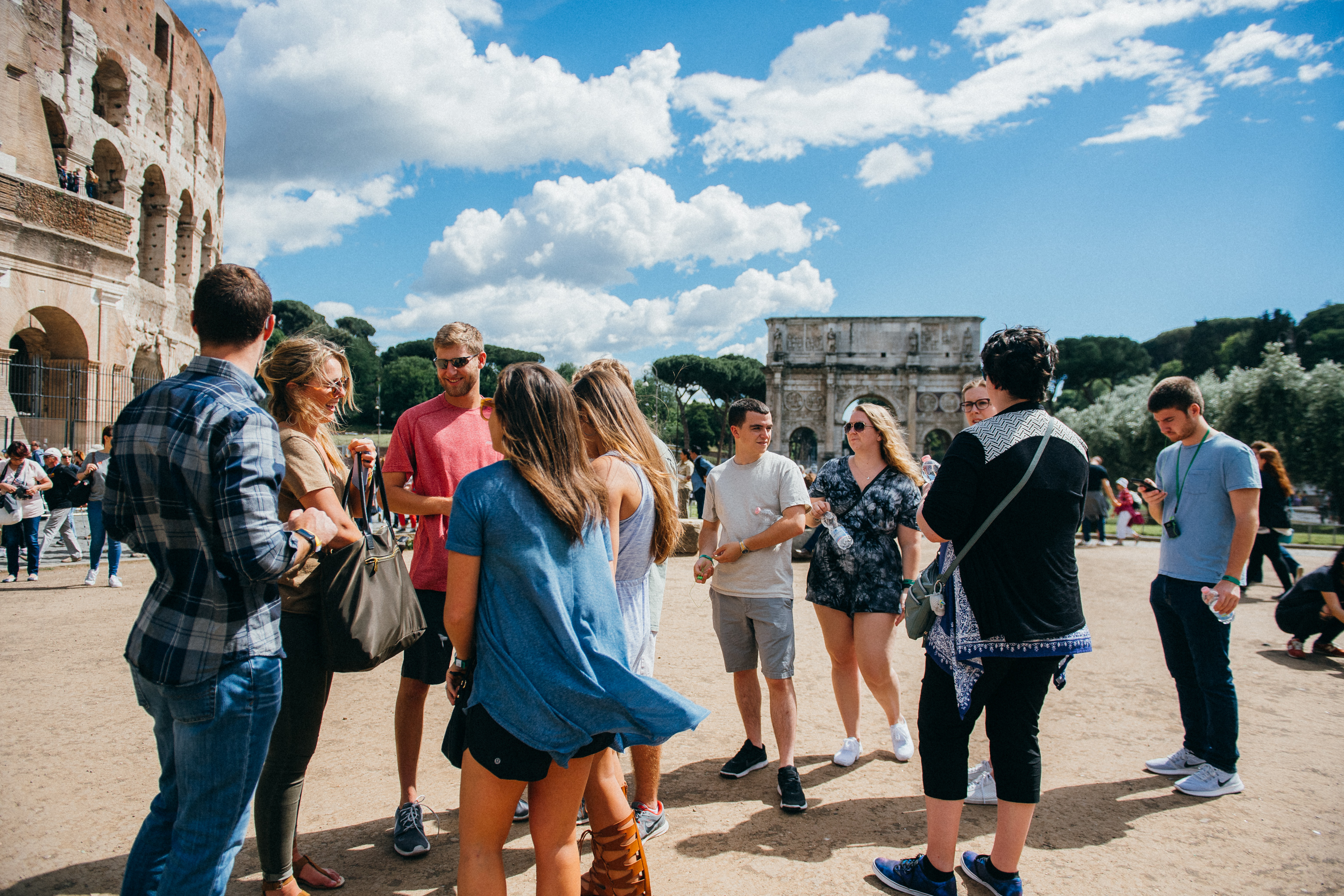

Studying abroad at an American university in Italy can be a great opportunity to earn academic credits while making new friends from all over the world. Many study abroad students decide to really maximize on their trip and visit some other areas of Europe during their semester in Rome at John Cabot University. Whether you’re passionate about fine arts, history or just curious about different cultures - there really is no limit to the beautiful landscape and historical landmarks Europe has to offer. But before one sets off on an adventure, whether it’s an excursion in Rome or a weekend in Paris, there are definitely some practical factors to consider - like how to be safety-savvy while on the move. Here are some tips for making your study abroad experience as fun and worry-free as possible:
Learn About Your New Surroundings
If you’ve arranged to tour Europe during weekends, you’ll want to do some research first to familiarize yourself with the location you’re planning to visit. Learning about culture, customs and traditions ahead of time can be very useful, as well as reading up on useful anecdotes and advice from fellow travelers. Here are some basics to be aware of before arriving at your destination:
- Key phrases in the native language
- Your temporary address (saved in your smartphone or on a card in your wallet)
- The contact information of friends on the same trip
- Local maps, key landmarks, places of interest (and perhaps neighborhoods to avoid)
- Local laws
Knowledge is power and when studying and travelling abroad, doing your homework on the locations you’ll visit goes a long way to ensuring a safe and happy trip. Try asking a student who has already attended an American university in Rome for useful insider tips about which places are safest after dark - or how to avoid looking too much the tourist!
The Do’s and Don’ts of Avoiding Theft
If you’re a student planning to study abroad in Italy, it’s likely that you’ve been advised about avoiding pickpockets, especially within major tourist areas. Since travelers often carry valuable belongings on their person, they can make easy targets for pickpockets - and this is true anywhere in the world. However, there are some simple precautions you can take to avoid losing your personal belongings and derailing a fun day out. Here are some basic guidelines to follow.
Don’t wear pricey, eye-catching accessories. Flashy jewellery is renowned for grabbing attention, so it’s best to keep that heirloom ring or expensive watch at home when touring local landmarks.
Do wear a money belt under your clothes. No one will see it—and invisibility is precisely what you want from something that’s potentially carrying your passport, money and credit cards.
Don’t carry a large, open purse. Giant hobo bags that don’t zip shut may be trendy, but they also create easy opportunities for theft. Opt for a smaller purse or bag that closes with a zipper or clasp - or ideally, both.
Do use your front pockets to store something you’d like to keep close at hand - like a cell phone. It’s far less likely that a “wandering” hand would try to nab an item from your front, rather than your back, pockets.
Finding the Safest Methods of Transportation
Sometimes finding the right method of transportation to meet your safety, comfort, and financial needs can be a little tricky. When considering the many choices on offer, it’s important to note that safety should always be your first priority. Let’s examine the options.
Car: While renting a car would probably be convenient because you wouldn’t have to stick to pesky departure schedules, it can also be expensive, considering insurance and gas rates. Driving can also be dangerous if you’re not familiar with the rules of the road in different countries.
Airplane: The rise of low cost carriers (LCCs) has made it possible to fly throughout Europe at an affordable rate. This is great for weekend trips, because you’ll get to your destination quickly with tons of time left to explore!
Train: This can be an ideal option for study abroad students. If you’re planning to travel by train, try not to carry a lot of baggage—there isn’t much storage space and you may lose track of your belongings.
Where would your first stop be when traveling through Europe?




